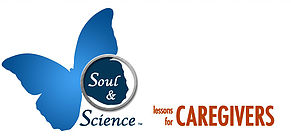VIDEOS

Published on Aug 26, 2016
Gregory Crawford, MBBS, MPHC, MD, FRACGP, FAChPM of The University of Adelaide, Adelaide, Australia discusses the importance of understanding patients’ needs. Curing disease is only one of the aspects of medicine. Healthcare professionals need to meet patients’ needs as well. The challenge for doctors is to have a good knowledge of medicine, but also good communication skills to understand patients’ issues. Patients facing end of life decisions may have different priorities regarding treatment and care than patients with a less advanced disease. The subject of death is difficult to talk about, for both patients and doctors. The default position is to be active, to make things better, which is often interpreted in terms of cure, rather than treating symptoms and caring. It is important to have a meaningful conversation with a patient in order to understand why they want to know the expected death date. For certain diseases it is possible to put a framework, which helps to answer this question, based on disease spread, change in physical function, or lack of treatment options available. Recorded at the Multinational Association of Supportive Care in Cancer (MASCC) and International Society of Ocular Oncology (ISOO) 2016 Annual Meeting on Supportive Care in Cancer held in Adelaide, Australia.
Published on Dec 29, 2012
Dr. Michael Fratkin is a Palliative Medicine physician who works to understand what’s needed and then to articulate what’s revealed while serving human beings facing death. As a clinician, an educator, and a journalistic poet, Dr. Fratkin returns from the bedsides of people facing the single greatest challenge in life with practical, provocative, and profound insights.
Published on Oct 12, 2010
Complete Premium video at: http://fora.tv/conference/new_yorker_…
Practicing surgeon Atul Gawande discusses the four important parts of talking with terminally ill patients about their end-of-life care. Rather than pressing patients to make hard decisions, Gawande emphasizes the importance of asking questions about their hopes and fears.
This excerpt was taken from a program titled “How to Live When You Have to Die,” featuring Atul Gawande. It was recorded in collaboration with the New Yorker Festival, on October 2, 2010.
Atul Gawande is a practicing surgeon at Brigham and Women’s Hospital, in Boston, and an associate professor at Harvard Medical School and the Harvard School of Public Health. Previously, he served as a senior health-policy adviser in the Clinton Administration. He is the author of “Complications,” “Better,” and “The Checklist Manifesto.” This year, he won a National Magazine Award for his New Yorker piece “The Cost Conundrum.”
Published on Jan 11, 2016
Dr. Leslie Blackhall, Head of Palliative Care at the University of Virginia, believes that accepting dying as a part of life allows us to achieve a fuller and richer life with the days that we live.
Dr. Blackhall has had a career-long focus on the care of patients with life-limiting illnesses, starting in her residency when she published a ground-breaking paper on medical futility in the New England Journal of Medicine. Since then, her mission has been to promote the understanding of end of life as a developmental stage and part of the continuum of care for all patients, and to transform medical education and health care systems to ensure patients in this stage of life receive compassionate, mindful, interprofessional and clinically excellent care. She was a program leader for a 2012 CMS Innovation Award, which integrates patient-reported outcomes into the electronic medical record as a guide to improving the quality of life, care coordination and end-of-life care planning for patients with incurable malignancies. She is the winner of the 2015 American Cancer Society Lane Adams Quality of Life Award for her work with cancer patients.
